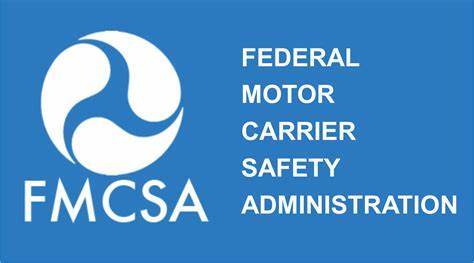www.fmcsaupdate.com Scam Biennial DOT Update – Steer Clear!
Did you come across www.fmcsaupdate.com website? It is actually a scam website posing as the real government website trying to get your money. Here is how this scam works.

What Is The www.fmcsaupdate.com Scam?
The shady folks operating www.fmcsaupdate.com are trying to trick trucking companies into shelling out money to file their DOT biennial update. They send letters and emails that contain threats of fines if you don’t pay up. The company will make you think they are representing DOT and they are NOT! They will charge you $150 to update your biennial (MCS-150) whereas you can do it for free in the government website.
Meanwhile, the website is owned by Dynamic Holding Group LLC/ which already has lots of complaints on Better Business Bureau –
This company scammed me. They are not associated with fmcsa. Bogus emails about updating MCS-150. Charged me $189.00 for a service I had already done myself. I was busy and thought I did something wrong. I cannot believe I fell for this scam.
FALSE ADVERTISING, FILED ONLINE THE BIENNIAL/MCS-150. DUE DATE WAS DUE APRIL, 2023. THEY SAID THEY FILED THE REPORT AND RECEIVED MY PAYMENT OF $188.57 ON 4/14/2023. THAT DIDN’T FILE THE REPORT, TRYING TO GET THE PAYMENT BACK THRU CREDIT CARD FRAU
How To File Your Biennial DOT Update
An FMCSA biennial update (or MCS 150 update) is required if you operate a trucking company in the United States. You’re required to make an update to your Federal Motor Carrier Safety Administration (FMCSA) record every two years. You can either update online (which is encouraged) or offline (this may delay the process).
Here’s how to file a Biennial DOT update online without paying a dime –
Visit the Government Website for Dot Biennial Update – Fmcsa.dot.gov
Follow the steps and procedures listed on the website.
What To Do If You Received The www.fmcsaupdate.com Email
Kindly ignore or delete as it is not connected to the U.S. DOT or WisDOT at all. You can file these updates for free on government websites, no need to pay anyone.
If you see an email from info@fmcsa.dot.gov or anything else that looks fishy and you’re not expecting it, just hit that delete button.
Here’s a tip straight from the FMCSA: The only legit way to log in to the Training Provider Registry is through login.gov. Never ever punch in your email and password on some random third-party website promising access to the Training Provider Registry.
Red Flags To Watch Out For
- Suspicious Activities and Misleading Info: Many users have sounded the alarm about strange happenings and deceptive info on the site. If something feels off or too good to be true, trust your gut and be cautious.
- Verify Claims Independently: It’s crucial to approach this website with a healthy dose of skepticism. If they’re making big claims, take the time to verify them through reliable sources. Don’t just take their word for it.
- Unauthorized Credit Card Charges: This is a big one! Several users have reported unauthorized charges on their credit cards after messing with www.fmcsaupdate.com. That’s a major warning sign right there.
- Outdated or Inaccurate Information: People are also saying that the info provided on the site is often outdated or just plain wrong. That’s a huge credibility issue. You want your info to be accurate and up-to-date, especially when it comes to something as important as FMCSA updates.
Tips To Avoid Being Scammed
To avoid the fmcsa scam or any other type of scam
- Be careful with unexpected emails and video graphics about refunds. If they look weird, have mistakes, or come from strange addresses, watch out.
- Don’t click any links or download stuff from these emails. They could be bad news.
- Check if it’s real by contacting the real folks through their official website or customer service.
- Keep your computer safe with antivirus updates.
What To Do If You Have Been Scammed
- Contact your bank or credit card issuer immediately.
- Inform your bank or credit card issuer about the unauthorized transaction and request a chargeback.
- Change your online passwords: If you have shared your password with the scammer, change your password immediately.
- Also be sure to use a strong and unique password for each account.
- Report the scam: You can report the scam to the Federal Trade Commission (FTC) or your local law enforcement agency.
- Check your credit rreport: Monitor your credit report for any suspicious activity.
- Stay vigilant: Be alert for any other phishing scams or suspicious emails, and do not share any sensitive information
